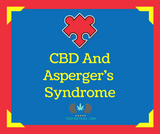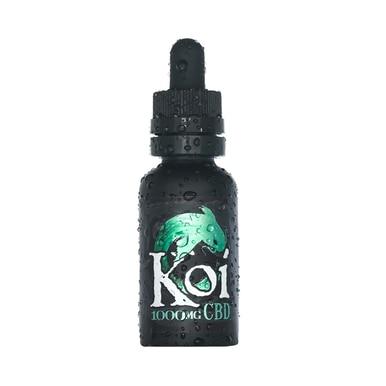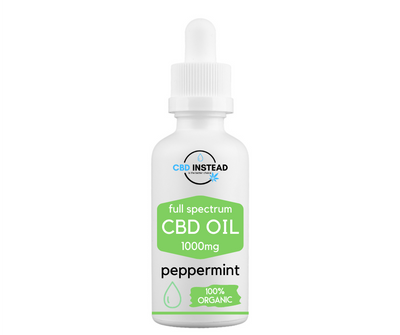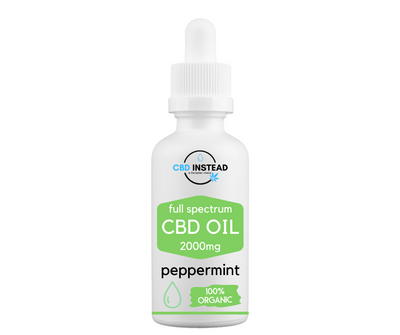If life were a Disney movie, our dogs would be able to walk over to us and let us know that they have a belly ache (most likely in song). Unfortunately, that isn’t our reality. This is why it is so important to know why your dog is behaving the way that they are. It’s also good to know when your dog is just doing something to say “I love you!”
Researchers believe that is it is important to observe your dog’s behavior and take the time to understand what the behaviors mean. Body language and certain behaviors are some of the few ways that your dog can communicate to you how they are feeling.
By understanding what causes certain habits or behaviors, you can start to catch illnesses before they fully develop. In some cases, you may even be able to prevent an illness or disorder with a keen enough eye.

Why Is My Dog Biting?
When you have a puppy, it’s likely that they are biting everything as a way to explore. The textures, tastes, and smells are exciting to a puppy. If your young dog is chewing on your hands or other dogs, it is something they will likely outgrow. But when the little nips and nibbles become aggressive snaps or bites, this is when it becomes an issue.
Studies have shown that dogs that experience anxiety are more likely to bite in the home. Anxiety causes a sense of fear or aggression, and if this isn’t taken care of it can become a dangerous habit to other animals in the home or your human family.
Why Is My Dog Circling?
There are several different theories as to why dogs circle before going to the bathroom. It could be to align with the earth’s magnetic field, to make sure that where they go to the bathroom is clean, or it could be helping to make their digestive system work more efficiently. And this isn’t the only place dog’s circle; dogs love to circle in their beds, too!
Dogs circle before going to bed because their instincts tell them to. While they are very domesticated especially compared to cats, dogs still have prehistoric instincts that drive them to do certain behaviors. Before humans were around to pamper their pups, dogs had to make their own beds in the dirt or grass and had to make sure their territory was marked for passerby’s to be aware. But when your dog has the compulsion to circle and can’t stop, it could be a health issue.
Dogs pace and circle compulsively when they have health issues. Other symptoms that come along with circling and pacing are limping, lethargy, a change in sleep habits, confusion, disorientation, changes int rained behavior, dilated pupils, or mismatched pupils.
Common Causes Of Circling
- Anxiety
- Liver Disease
- Cushing Disease
- Canine Cognitive Dysfunction (Dog Dementia)
- Brain Tumor
- Ear Infection
Why Does My Dog Dig?
Dogs love to dig; this is no surprise. They dig for a bunch of different reasons like hiding treasured bones or to follow a scent that gets stronger the deeper they dig. This adorable habit can become destructive if it gets too far, especially if they bring the digging inside. If this is the case, it could be a cry for help.
When a dog feels the need to escape, they will find a way to do it. I have a scarred kitchen floor to prove it. This can cause them to dig out from fences or try to dig out of your own house. This can be caused by separation anxiety or trauma the dog may have experienced in the past. Digging is also a huge stress reliever for dogs, so you may find them getting their paws into somewhere they don’t belong when your dog is stressed out.
Why Does My Dog Press Their Head?
Dogs are so cute when they are asking for attention. My pup will come over and set his head in your lap until you give the appropriate amount of pets. When your dog presses their body or head against you, it is likely that they are just looking for attention. This is also a way of asking for protection as well as affection. But when they start pressing their head against objects or walls, you need to see a vet immediately.
Causes Of Head Pressing
- Canine distemper virus
- Neurological disease
- Metabolic disorders
- Hepatic encephalopathy
- Brain or body tumor
- Other cancers of the nervous system
- Infections of the nervous system
- Meningitis/myelitis
- Poisoning
- Degenerative disease
- Trauma
Why Does My Dog Sit Between My Legs Or On My Feet?
Dogs will come up close and personal for a variety of reasons. One reason is that they may be marking their territory. You are theirs, and anyone who comes sniffing by will know it. They could also be guarding you, feeling unease at something close by making sure you are protected. They could also be using you to ease their social anxiety.
Your dog may react more timidly between your legs when they are trying to ease their anxiety. You may see them tremble, shake, and be very aware of the room. If they are just lounging around and seem relaxed, they are just being cuddly creatures. But when their behavior starts to become panicky, you might have an issue.
Why Is My Dog Scooting?
You may find this habit hilarious, or you may find it disgusting, but when your dog scoots, it’s most likely that something is up. When your dog scoots across the floor, it is because their anus is irritated for some reason. It could be something as small as they need a change in their diet to something severe like a tumor.
Common Causes For Scooting
- Diet
- Anal gland issues
- Infections
- Abscesses
- Tumors
Why Is My Dog Yawning?
Everyone yawns when they are tired, right? Our bodies slow down, and we need more oxygen which makes us yawn. It is the same thing for dogs in most cases. A dog might even catch a yawn from another dog! But a yawn can mean more than just nap time when it comes to your pup.
Dogs will sometimes yawn when they are stressed out about a situation. If another dog is playing with their toy or eating their food and your dog starts to yawn, this is an indication that your dog is not okay with what is going on. If your dog is yawning when you leave, this could be an indication of separation anxiety.

What To Do When You Notice Health Problems In Your Dog
Now you know a little bit more about your dog, so what do you do when you start to notice unhealthy behaviors? There are several routes you can go when assessing the situations depending on the severity, but the first step should always 100% of the time to be to talk to your vet.
Go To the Vet
The first thing you should always do is go to your vet. They are a trained professional who knows your pup inside and out. They can help you figure out what is wrong with your dog and do any tests needed to make sure your dog is healthy. Once they have diagnosed the issue, you can discuss what further measures need to be taken to help your dog. One thing to bring up to your vet while you're there is using CBD oil for your dog.
What Is CBD Oil?

Cannabidiol (CBD) is a chemical that comes from the cannabis plant. Unlike THC, this chemical doesn’t get you or your dog high, and at high levels, CBD oil isn’t toxic to dogs. The reason this chemical works so well in the human and pet body is that it interacts with the body’s endocannabinoid system, something that every mammal has.
What Is The Endocannabinoid System?
The endocannabinoid system is what keeps you and your pup regulated. If your dog gets a fever, that is their endocannabinoid system fighting off a pathogen. The way that CBD interacts with the endocannabinoid system is by stimulating certain receptors outside of the system, opening up pathways making for easier travel through the brain, and elevating endocannabinoids.
What Are Endocannabinoids?
Endocannabinoids are where the magic happens. CBD works so well because it elevates endocannabinoids and helps enhance their efficiency. Endocannabinoids are chemicals that the brain produces that bind to receptors in our body called the cannabinoid receptors.
The endocannabinoids anandamide binds to the CB1 receptor which helps to mediate neurological functions. These functions are things like appetite, sleep cycle, mood, and pain sensitivity. The endocannabinoid 2-AG binds to the CB2 receptor which helps with your body’s immune functions. By causing an enhanced interaction between endocannabinoids and cannabinoid receptors, CBD oil may be able to help with some of the health issues in your dog that causes different behavior.
CBD For Anxiety And Aggression
Aggression is a way to deal with fear the same way that cowering under your knees is. Both fear and aggression are products of anxiety. CBD oil may be able to help with your dog’s anxiety by reducing the overactivity in the amygdala which is the part of the brain that delivers the fear response.
CBD For Infections
Cannabidiol has shown in studies to be a potent antibacterial, just like other cannabinoids like THC and CBN. CBD topicals may be able to help with infections on the outside of the body, and tinctures and edibles may be able to help with the infections inside. Make sure always to have your vet help monitor your dog's progress.
CBD For Dog Dementia
If your dog is starting to become confused and showing signs of dementia, CBD oil may be able to help. Studies have shown that CBD inhibits the production of tau proteins which is what causes the blockage in the brain. CBD oil has also shown to have neuroprotective effects to help reduce or even prevent damage.
CBD For Cancer In Dogs
Studies have shown that cannabidiol stops the growth of cancer cells in lab studies. Many people have also used CBD oil to help make the last few months more enjoyable for their pet when the cancer has become too severe.
How To Give CBD Oil To Your Dog
There are a few options you have when it comes to giving CBD oil to your dog. There are CBD Dog Treats which can be a fun way for you and your dog to bond and enjoy the benefits of CBD oil. There are also tinctures which work more quickly and are more potent which may be more your dog’s speed.
Have you used CBD oil for your dog? How did it help your dog? We would love to hear about it in the comment section below!





















